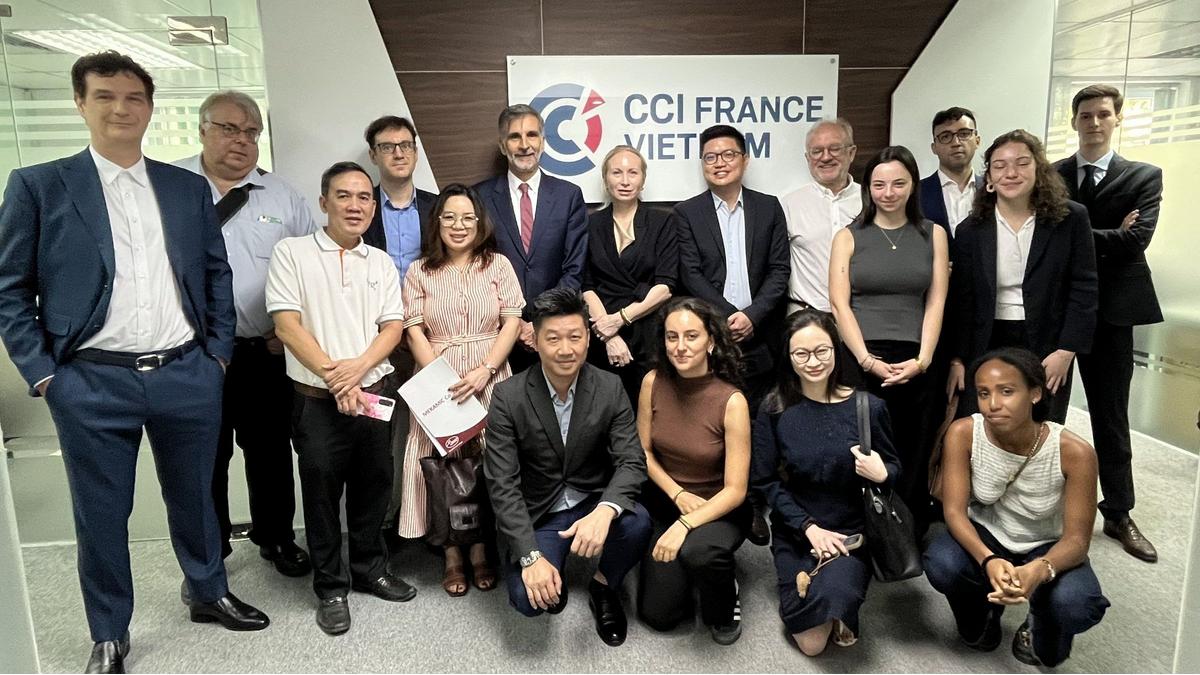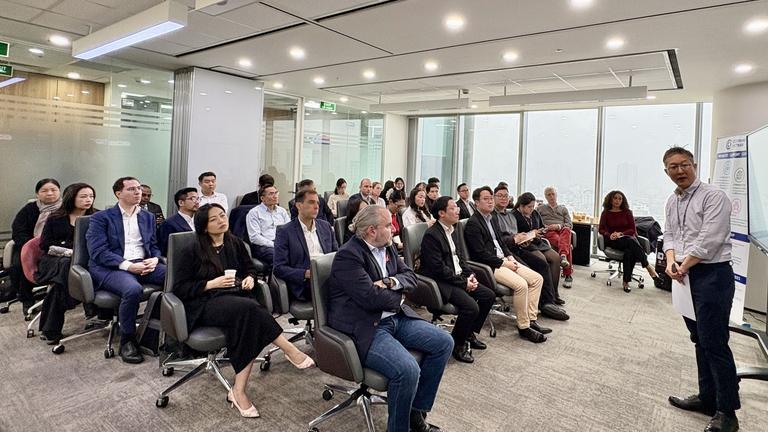Event report
[THROWBACK] HN: Vietnam Faces U.S. Tariffs: Between Trade Shock and State Reform

On April 29, the CCIFV hosted a breakfast discussion with two guest speakers: Mr. Jean-Alexandre Egea, Head of the Economic Section at the French Embassy in Hanoi, and Dr. Rémi Nguyen, Partner at MLR-Constantin and Vice President of the CCIFV. The event focused on two major developments affecting Vietnam: escalating trade tensions with the United States and the country’s ongoing efforts to reform its public administration.
Vietnam is currently undergoing a period of heightened economic pressure. One key challenge stems from the recent U.S. tariff measures, applied through an automatic mechanism that offers no preferential treatment. As a result, Vietnam has become the sixth most heavily taxed Asian country in its trade with the U.S., a serious concern for a country where exports make up 85% of GDP. Vietnam’s role in global supply chains adds to the challenge, as 54% of its exports come from multinational company subsidiaries. Since 2024, bilateral trade between Vietnam and the U.S. has tripled, but U.S. exports to Vietnam have remained flat. This imbalance has contributed to a $137 billion trade deficit for the United States, its third largest, after China and Mexico. The new tariffs are expected to lower the demand for non-essential goods, disrupt regional supply chains, and raise unemployment. Economic growth could fall by up to two percentage points, and the IMF projects a slowdown in Vietnam’s growth to 5.2% in 2025 and 5% in 2026. This outlook has raised concerns about the viability of both public and private investment projects. In response, the Vietnamese government has established a rapid response team and begun negotiations aimed at reducing tariffs and mitigating trade barriers.
At the same time, Vietnam is advancing a broad reform of its administrative system, with the aim of creating a more efficient, transparent, and responsive public sector. The reforms focus on reducing overlapping functions, streamlining bureaucratic structures, and improving coordination between government agencies, all to speed up decision-making and enhance public service delivery. These measures are part of a wider modernization strategy to ensure the country’s governance keeps pace with its rapid economic development and growing integration into the global economy.
By pursuing both a targeted trade strategy and systemic administrative reform, Vietnam is adopting a dual approach responding to short-term economic risks while preparing its institutions to meet the longer-term challenges of an increasingly complex international environment. Reflecting this momentum, Vietnam's Prime Minister has announced the resumption of trade negotiations with the United States, with the first session scheduled for May 7 - marking a significant step forward in strengthening bilateral relations between the two nations.


